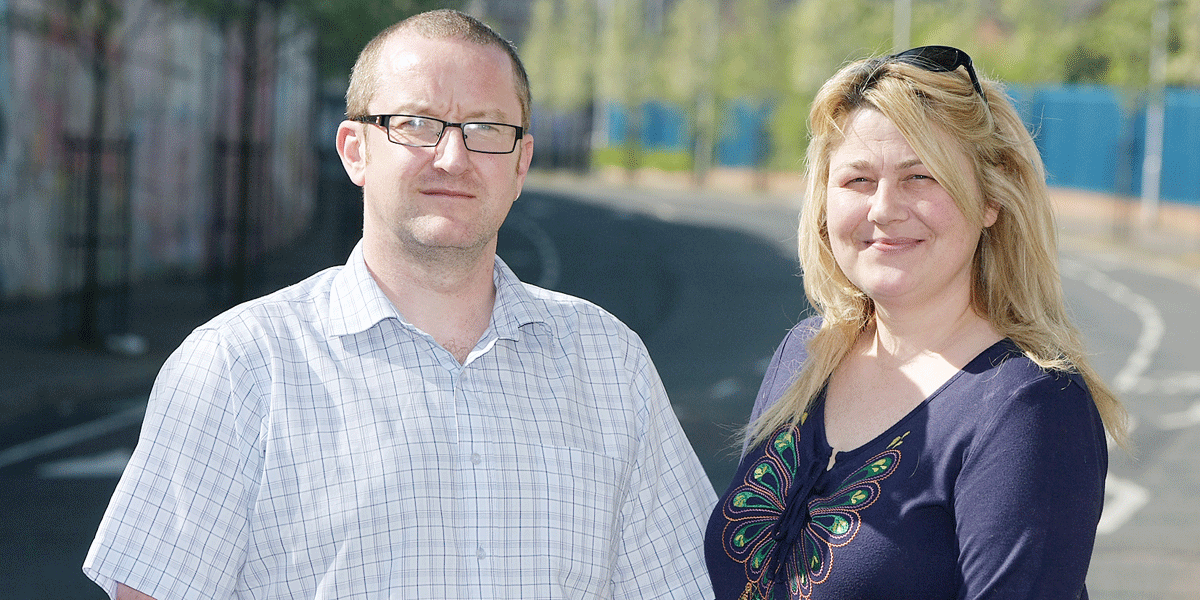With the economy continuing to struggle, one sector of society is urging people to sit up and take notice of its flourishing business model. The co-operative movement has been around for a very long time, but its emergence in Ireland has been tardy by comparison, although in the 1970s West Belfast had a thriving co-operative sector.
It is, however, showing signs of blossoming again with more people here in West Belfast turning to the worker co-operative model, which is seen as a successful business model in tough economic times.
A new cross-community business, the Belfast Cleaning Co-operative, has been established involving women from the Falls and the Shankill, and there is much interest from larger local organisations seeking to expand, including the West Belfast Taxi Association, who are currently assessing the benefits of being part of a co-operative.
Sinn Féin Councillor Jim McVeigh is a staunch advocate of the co-operative model and Trademark Belfast who are helping people in West Belfast who are interested in pursuing a business co-operative.
“The co-operative movement in Ireland, including West Belfast, is under-developed,” said Councillor McVeigh. “In the likes of Italy, the worker co-operative is a significant part of the local economy employing thousands of people. It uses the social ethics of the business model and has equality at the heart of it. There are no multi-millionaire directors. With a co-operative, the workers either share the profit or it goes back into the company.
“A typical business is hierarchical, much of the profit goes to the owners and directors. If you have a model that cuts out the massive wages, it becomes sustainable as the profits are ploughed into wages or invested in the company.
“This is an important business model now because in the difficult economic climate it’s a sustainable model as you can absorb financial pressures when there are no big wages.”
The model is being pursued by Trademark Belfast, off the Falls Road, which promotes social economy ventures.
Trademark’s Stephen Nolan and Alice McLarnon have been supporting the Belfast Cleaning Co-operative and are keen to assist more businesses.
“The cleaning business is a cross-community co-operative with six members,” explained Alice. “It came from the coming together of women’s groups in the area on both sides of the interface. All of these women are eager to work and eager to get off the welfare system so they were keen on the worker co-operative model.
“We are securing contracts at the minute and hope the business will be thriving before long.”
Stephen detailed some other thriving co-operative businesses in Belfast and explained what makes them work successfully.
“We have developed a number of co-operatives recently including a bookshop in the city centre and an events promotion company,” he said.
“I think people value the ethics of the co-operative model. When someone in a business is earning 20 or 30 thousand more than their colleagues in the same business, it raises questions. The co-operative model eliminates that by making everyone responsible for their own job, it’s cost-efficient and it works.”
In other countries, co-operatives include libraries, wind farms, art studios, play schools and more. With that in mind, Councillor McVeigh says Belfast City Council is willing to help out anyone who is interested is setting up a worker co-operative here.
“This year is the United Nations International Year of Co-operatives,” he said. “The UN is trying to encourage and promote the co-operative model as a community-friendly business model. This is an egalitarian and socially responsible model. It’s a model we want to see grow in this city so we are happy to create a debate about developing co-operative projects.
“People can come to Belfast City Council and bid for cash from the investment package as well as availing of the co-operative loan fund. You can also come and talk to our councillors about your ideas. There is room in the economy for this, it’s good politics. It’s not about replacing capitalism, it’s about developing a socially responsible sector, it’s about putting James Connolly’s politics into practice.
“The priority isn’t profit, it’s employment and supporting communities.”






